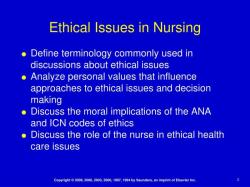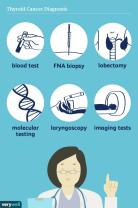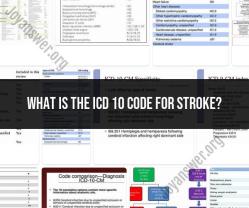What is the main topic under medical microbiology?
Medical microbiology is a branch of microbiology that specifically focuses on the study of microorganisms that are of medical importance. It plays a crucial role in understanding the biology of pathogens (disease-causing microorganisms) and their interactions with the human body. The main focus areas in medical microbiology include:
Bacteriology:
- Bacteriology is the study of bacteria, which are single-celled microorganisms. In medical microbiology, bacteriologists investigate the morphology, physiology, genetics, and pathogenicity of bacteria. This field is essential for understanding bacterial infections and developing strategies for their prevention and treatment.
Virology:
- Virology is the study of viruses, which are microscopic infectious agents that can only replicate inside the cells of living organisms. Virologists focus on the structure, classification, replication mechanisms, and host interactions of viruses. Understanding virology is crucial for preventing and treating viral infections.
Mycology:
- Mycology is the study of fungi. In medical microbiology, mycologists examine the characteristics and life cycles of pathogenic fungi. Fungal infections, known as mycoses, can affect various parts of the body, and mycology helps in diagnosing and treating these conditions.
Parasitology:
- Parasitology involves the study of parasites, including protozoa, helminths (worms), and arthropods. Medical parasitologists investigate the life cycles, transmission, and pathogenicity of parasites that cause diseases in humans. Malaria, amoebiasis, and helminth infections are examples of parasitic diseases.
Immunology:
- Immunology is the study of the immune system, which plays a critical role in defending the body against infections. Immunologists in medical microbiology focus on understanding how the immune system recognizes and responds to pathogens, as well as developing vaccines and immunotherapies.
Epidemiology:
- Epidemiology is the study of the distribution and determinants of diseases in populations. Medical microbiologists use epidemiological methods to investigate the spread of infectious diseases, identify risk factors, and implement measures for disease control and prevention.
Antimicrobial Resistance:
- The emergence and spread of antimicrobial resistance (AMR) is a significant concern in medical microbiology. Researchers study the mechanisms of resistance and work on developing strategies to combat the growing threat of antibiotic-resistant bacteria.
Diagnostic Microbiology:
- Diagnostic microbiology involves the identification and characterization of microorganisms responsible for infections. Clinical microbiologists use various laboratory techniques, including culturing, molecular methods, and serological tests, to diagnose infectious diseases.
Public Health Microbiology:
- Public health microbiology focuses on the surveillance, control, and prevention of infectious diseases at the community and population levels. It involves collaboration with public health agencies to monitor and manage disease outbreaks.
Molecular Microbiology:
- Molecular microbiology utilizes molecular biology techniques to study the genetic makeup and functions of microorganisms. This includes understanding microbial genetics, gene expression, and molecular mechanisms underlying microbial pathogenesis.
Medical microbiology is an interdisciplinary field that integrates knowledge from microbiology, immunology, genetics, and other related disciplines to address the challenges posed by infectious diseases. Research in these focus areas contributes to the development of new diagnostic tools, treatments, and preventive measures to improve public health outcomes.
What specific subjects fall under the umbrella of medical microbiology?
Medical microbiology delves into the fascinating world of microorganisms with a focus on their impact on human health. It encompasses a diverse range of subjects, broadly categorized into four main areas:
1. Bacteriology: This branch focuses on bacteria, their morphology, physiology, pathogenesis (disease-causing mechanisms), and classification. Students learn about common bacterial pathogens, antimicrobial resistance, and diagnostic techniques for bacterial infections. Examples of specific subjects within bacteriology include:
- Bacterial taxonomy and identification: Classifying and identifying bacteria based on their characteristics.
- Bacterial metabolism and growth: Understanding how bacteria obtain energy and reproduce.
- Bacterial virulence factors: Examining how bacteria invade and damage host cells.
- Antimicrobial therapy: Studying the mechanisms of action of antibiotics and resistance strategies employed by bacteria.
- Bacterial infections: Investigating specific bacterial diseases like pneumonia, meningitis, and tuberculosis.
2. Virology: This branch dives into the world of viruses, their structure, replication, and their role in causing human diseases. Students learn about viral diversity, transmission routes, antiviral therapeutics, and vaccine development. Specific subjects within virology include:
- Viral structure and classification: Understanding the different types of viruses and their basic architecture.
- Viral replication cycles: Examining how viruses hijack host cells to replicate and spread.
- Viral pathogenesis: Investigating how viruses cause specific diseases like influenza, HIV/AIDS, and hepatitis.
- Antiviral drugs and vaccines: Studying the mechanisms of antiviral drugs and the development of vaccines against specific viruses.
- Emerging viral infections: Exploring newly discovered viruses and their potential threat to human health.
3. Mycology: This branch focuses on fungi and their impact on human health. Students learn about the different types of fungi, their pathogenic mechanisms, and antifungal medications. Specific subjects within mycology include:
- Fungal taxonomy and identification: Classifying and identifying different types of fungi.
- Fungal growth and reproduction: Understanding how fungi grow and spread.
- Fungal infections: Investigating fungal diseases like candidiasis, aspergillosis, and athlete's foot.
- Antifungal therapy: Studying the mechanisms of action of antifungal drugs and antifungal resistance.
- Emerging fungal infections: Exploring new fungal pathogens and their potential threat.
4. Parasitology: This branch focuses on parasites, their life cycles, and their impact on human health. Students learn about different types of parasites, their transmission routes, antiparasitic drugs, and public health measures for parasite control. Specific subjects within parasitology include:
- Parasite taxonomy and identification: Classifying and identifying different types of parasites.
- Parasite life cycles: Understanding how parasites complete their life cycles within a host.
- Parasitic diseases: Investigating diseases caused by protozoa, worms, and other parasites like malaria, schistosomiasis, and trypanosomiasis.
- Antiparasitic drugs and vaccines: Studying the mechanisms of action of antiparasitic drugs and the development of vaccines against specific parasites.
- Public health and parasite control: Learning about strategies to control parasite transmission and prevent parasitic diseases.
These are just some of the core subjects under the umbrella of medical microbiology. Each subfield offers a deep dive into the world of microorganisms and their interaction with human health. Depending on your specific interests, you can choose to focus on specific areas, such as bacterial pathogenesis, viral vaccines, or emerging fungal infections.
Remember, medical microbiology is constantly evolving as new pathogens emerge and scientific advancements occur. Staying informed about the latest discoveries and advancements in this dynamic field is key to understanding the ever-changing landscape of infectious diseases and developing effective prevention and treatment strategies.
I hope this comprehensive overview helps you visualize the vast and fascinating world of medical microbiology! Feel free to ask further questions if you'd like to explore specific subjects within this field in more detail.













